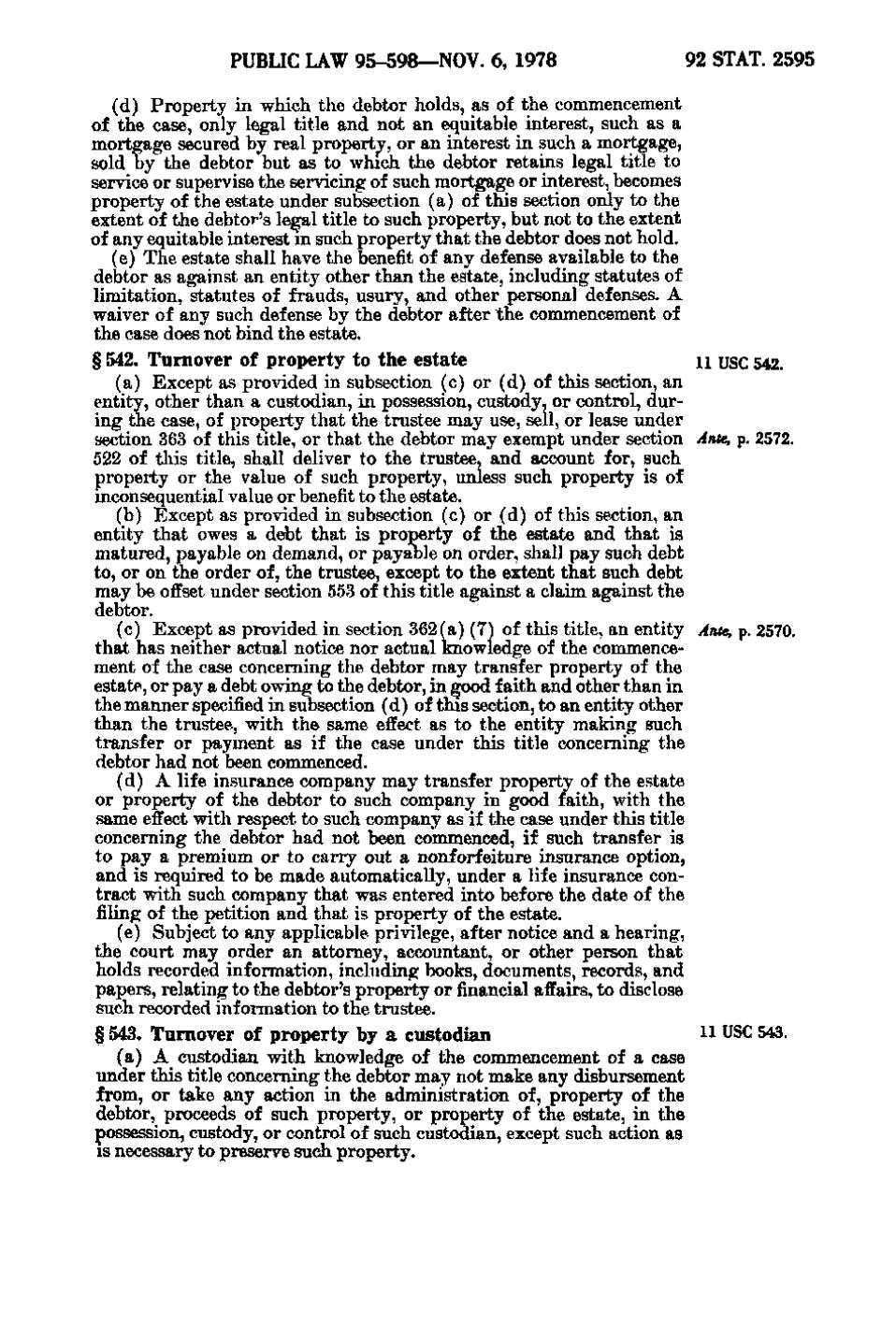PUBLIC LAW 95-598—NOV. 6, 1978
92 STAT. 2595
(d) Property in which the debtor holds, as of the commencement of the case, only legal title and not an equitable interest, such as a mortgage secured by real property, or an interest in such a mortgage, sold by the debtor but as to which the debtor retains legal title to service or supervise the servicing of such mortgage or interest, becomes property of the estate under subsection (a) of this section only to the extent of the debtor's legal title to such property, but not to the extent of any equitable interest in such property that the debtor does not hold. (e) The estate shall have the benefit of any defense available to the debtor as against an entity other than the estate, including statutes of limitation, statutes of frauds, usury, and other personal defenses, A waiver of any such defense by the debtor after the commencement of the case does not bind the estate. § 542. Turnover of property to the estate (a) Except as provided in subsection (c) or (d) of this section, an entity, other than a custodian, in possession, custody, or control, during the case, of property that the trustee may use, sell, or lease under section 363 of this title, or that the debtor may exempt under section 522 of this title, shall deliver to the trustee, and account for, such property or the value of such property, unless such property is of inconsequential value or benefit to the estate. (b) Except as provided in subsection (c) or (d) of this section, an entity that owes a debt that is property of the estate and that is matured, payable on demand, or payable on order, shall pay such debt to, or on the order of, the trustee, except to the extent that such debt may be offset under section 553 of this title against a claim against the debtor. (c) Except as provided in section 362(a)(7) of this title, an entity that has neither actual notice nor actual knowledge of the commencement of the case concerning the debtor may transfer property of the estate, or pay a debt owing to the debtor, in good faith and other than in the manner specified in subsection (d) of this section, to an entity other than the trustee, with the same effect as to the entity making such transfer or payment as if the case under this title concerning the debtor had not been commenced. (d) A life insurance company may transfer property of the estate or property of the debtor to such company in good faith, with the same effect with respect to such company as if the case under this title concerning the debtor had not been commenced, if such transfer is to pay a premium or to carry out a nonforfeiture insurance option, and is required to be made automatically, under a life insurance contract with such company that was entered into before the date of the filing of the petition and that is property of the estate. (e) Subject to any applicable privilege, after notice and a hearing, the court may order an attorney, accountant, or other person that holds recorded information, including books, documents, records, and papers, relating to the debtor's property or financial affairs, to disclose such recorded information to the trustee. § 543. Turnover of property by a custodian (a) A custodian with knowledge of the commencement of a case under this title concerning the debtor may not make any disbursement from, or take any action in the administration of, property of the debtor, proceeds of such property, or property of the estate, in the possession, custody, or control of such custodian, except such action as is necessary to preserve such property.
-^'^t >" -. ' -;'""•'• ' 11 USC 542.
Ante, p. 2572.
Ante, p. 2570.
H USC 543.
�
